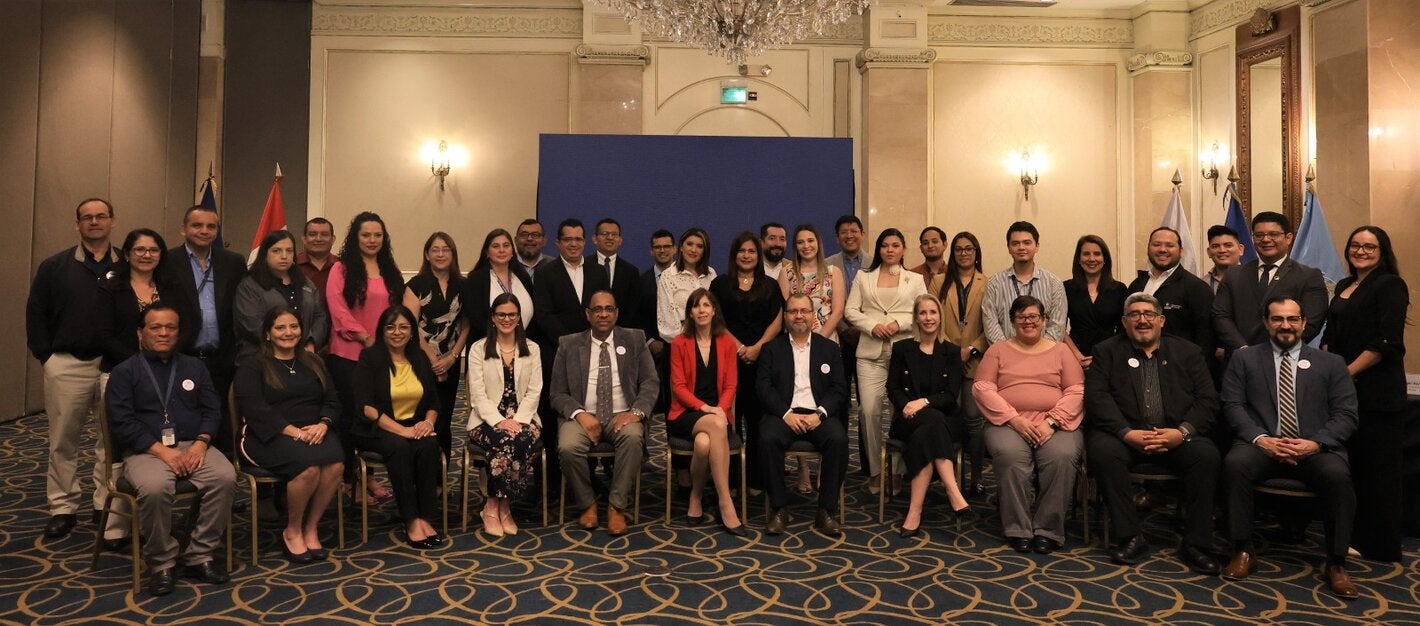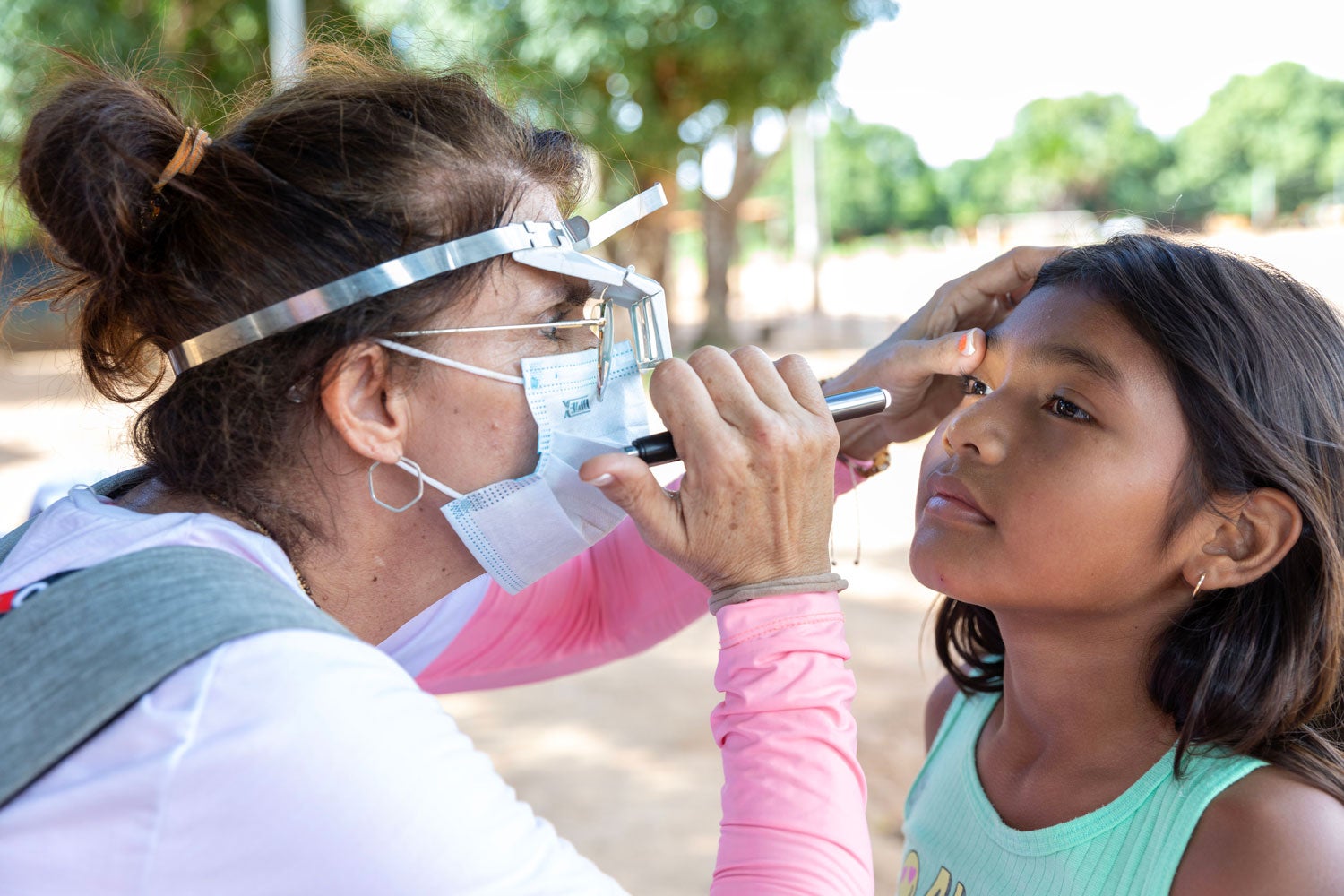
San Salvador, 9 August 2024 – The Pan American Health Organization (PAHO) and the Government of Canada, through its Embassy in El Salvador and in coordination with the Salvadoran Government, launched today a project aimed at trachoma detection in prioritized communities as part of a regional initiative to eliminate this disease. Trachoma is an eye disease and the leading cause of infectious blindness worldwide, which disproportionately affects women in vulnerable and remote areas of Latin America.
Supported by a generous contribution of CAD 415,000 (USD 302,180) from Global Affairs Canada (GAC), PAHO will expand its technical cooperation to strengthen disease surveillance and extend treatment efforts. This intervention is anticipated to benefit approximately 141,000 people in the five prioritized departments of Ahuachapán, Chalatenango, Usulután, San Miguel, and Morazán.
The collaboration was announced today by Kim Cowan, representative of the Government of Canada; Ángel Alvarez, PAHO/WHO representative in El Salvador; Karla de Palma, Director of the Salvadoran Agency for International Cooperation (ESCO); and Carlos Alvarenga, Deputy Minister of Health Management and Development, during the launch of the project “Improving the Health of Communities, Women, and Children through the Elimination of Trachoma as a Public Health Issue.”
“El Salvador is proud to join these regional efforts to eliminate trachoma. Today, we take the decisive first step by starting trachoma detection actions in prioritized communities. This effort marks a significant progress for El Salvador’s public health and has the full support of the PAHO/WHO office in our country,” stated Alvarez.
Kim Cowan, representing the Canadian government on her visit to El Salvador, remarked: “Canada’s contribution reflects our commitment to health equity. Our feminist international assistance policy underscores the importance of addressing inequalities. Therefore, it is crucial that this project addresses the specific barriers faced by women, who are disproportionately affected by trachoma due to factors such as traditional caregiving roles and limited access to health services.”
Cowan recalled that in 2022, Canada signed a grant agreement to support PAHO through a five-year project worth CAD 15 million to accelerate efforts to eliminate trachoma in the Americas. In El Salvador, Canada’s financial and technical support, alongside PAHO’s, will scale up rapid trachoma assessments starting this September with the Ministry of Health under a multidisciplinary technical team to identify priority areas and move forward with an action plan.
Trachoma Detection
Trachoma is caused by the bacterium Chlamydia trachomatis and is primarily transmitted by direct contact with ocular secretions of persons infected. The disease disproportionately affects those living in extreme poverty. Contributing factors include overcrowding and poor hygiene and sanitation conditions.
Women are estimated to be twice as likely to be affected by this disease and up to four times more likely than men to become blind from trachoma. This disparity is due to a combination of factors, including traditional gender-based caregiving roles in endemic communities, lack of education, and limited access to basic health services.
PAHO supports countries in the Americas to accelerate efforts toward the elimination of this disease through integrated approaches focused on increasing access to health services, improving health information and surveillance systems, addressing social and environmental determinants of health, and strengthening governance to leave no one behind.




